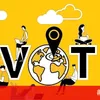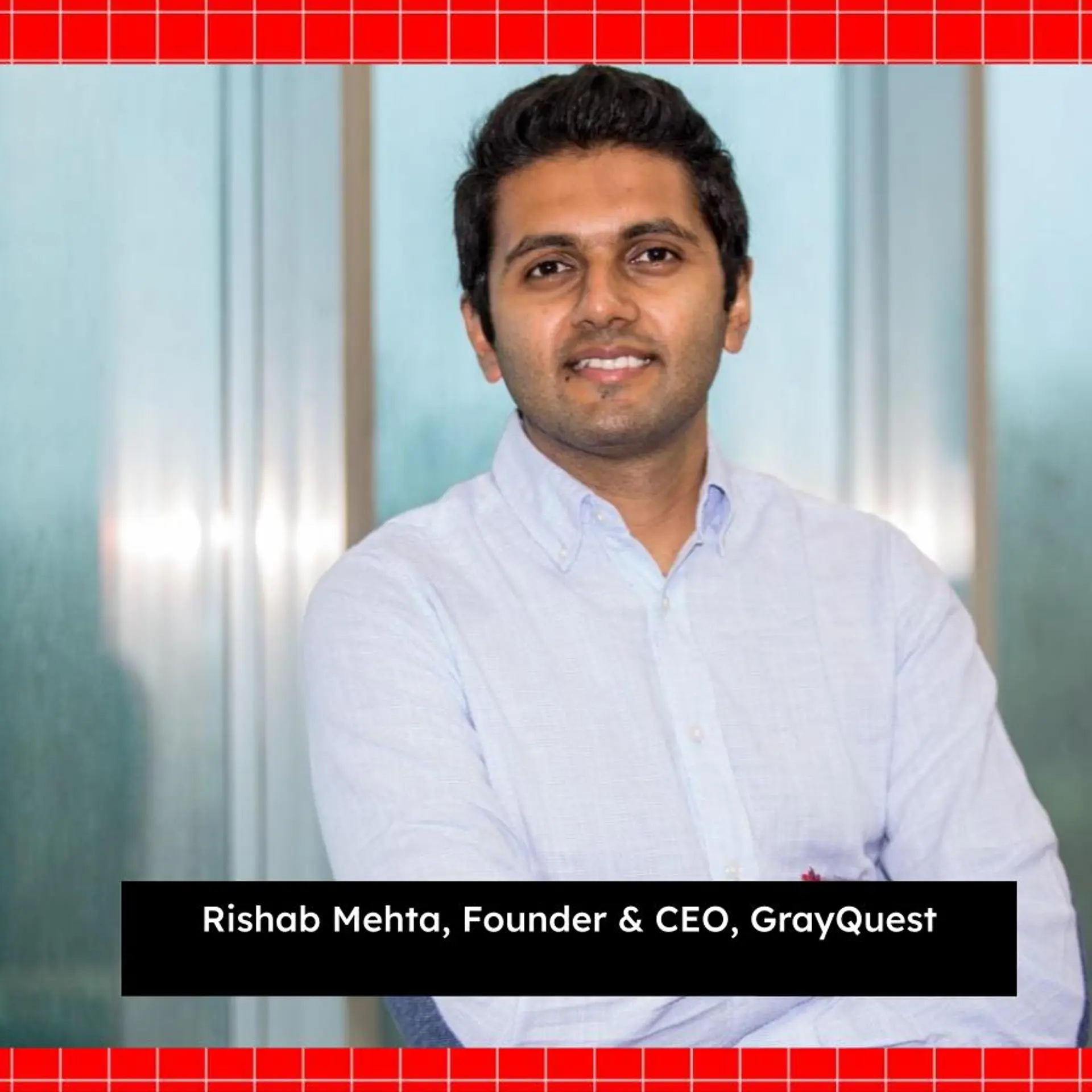Pivot and Persist: This Bengaluru-based experiential event startup eyes double revenue after pivoting from services to product
Event startup Digital Jalebi decided to bring its offline event-organising talent online, in light of the coronavirus lockdown. Its latest product is a web-based virtual event platform, which can be customised as per a client's needs.
When the coronavirus pandemic brought the world to a standstill, Bengaluru-based Syed Fawaz Ahmed and Nikhil Joshi, like several other entrepreneurs, started to worry about the effect it would have on their business.
For Syed and Nikhil, Co-founders of – a startup that designs experiential solutions for marketing, events, museums, and retail spaces, among other things – the cancellation of physical events as a result of the lockdown was concerning, and they realised it was something that could cripple their startup.

[LtoR] Syed Fawaz Ahmed and Nikhil Joshi
Doing what only pragmatic entrepreneurs do, the duo decided to pivot, and launched a web-based virtual event platform that can be customised as per a client’s needs.
The experiential platform helps recreate experiences from the real world, online, without needing users to leave the comfort of their homes. It can be run on any browser.
“Physical events or any opportunities related to spaces have dried up. The event industry has been the hardest hit, and one can see no major events happening in this year,” says Syed in an interview with YourStory.
The sheer presence of crowd and energy is the soul of any event or award function. Though the original structure is not dying anytime soon, COVID-19 has certainly forced the organisers to look for an alternate option, he adds.
Digital Jalebi’s clientele includes Google, Amazon, Hindustan Aeronautics Limited (HAL), and Defence Research and Development Organisation (DRDO), among others.
Backstory
Nikhil and Syed were studying together at National Institute of Design in Ahmedabad, when they stumbled upon the concept of trans-disciplinary design, where various disciplines of design are mixed to convey a message.
The concept stayed with them, and, after graduation, they set up a startup to offer events that combined different design elements, as well as tech.
“Initially, we exhibited in spaces like malls. This gave us an idea of what to explore ahead,” says Nikhil.
On average, Digital Jalebi has been doing 300 to 350 events every year, across government, defence, aero, technology, pharma, and other sectors. The last physical event the startup did before the lockdown was a defence expo in the second week of February, where it set up exhibits for the UP government, DRDO, and HAL.
Digital Jalebi focusses on spatial interactive installations, and seeks to transform spaces that can relay messages, using digital art, visual communication, architecture, and programming.
The pivot point
Over the last three years, the startup’s revenue grew at a rate of 100 percent, it claims. The pandemic hit the country and brought operations to a grinding halt just as it was closing its last financial year, and beginning a new one.
“We took the hit, but then decided to stay afloat and bucked up for a pivot,” says Nikhil.
The two founders took the opportunity to question their business strategy and product viability during the lockdown.
“At this time, our clients can try virtual events, because at this time no one would complain that a physical one would have been a better option,” says Nikhil.
Seeing weeks-long lockdowns bleed into months-long curfews, Nikhil and Syed realised that the pandemic wasn’t going anywhere, anytime soon. Events after February started getting cancelled, and new projects did not come. But that changed after they litmus-tested their pivot.
“In March, companies thought that once the pandemic subsides, they will resume the events, but now they are seeing that this is how it is going to be, and they want solutions like ours,” Nikhil adds.
The product
The biggest problem that the startup aims to solve is creating recall, so that events that people attend – online, without leaving their homes – can still have an impact on them.
A memorable event has a lot of experiential aspects to it, which basically makes communication of a company, effective. To replicate that experience, we developed a central platform with 3D capabilities, says Nikhil.
The online events platform allows attendees to roam around an exhibit, just like in the physical world.
“When you enter this virtual event, you create your avatar, and so do others. While a session is going on, you can see others too.”
Users can click on each other’s avatars to glean basic information, like profession, or designation, and interact with each other in a private chat window. Attendees can also search for people by their names, and send each other ‘add’ requests.
“We are soon going to add one-to-one video feature in our products,” says Nikhil.
With the new product, Digital Jalebi hopes to bring in business from companies of all sizes around the world. Pitching themselves as a cheaper alternative to actual, real-life events, the startup says clients will benefit from data on user behaviour.

“This situation has given clients the necessary push to move to digital. The digital obviously cannot match the experience of going to a physical event, but this kind of event offers better analytics, or as we say, ROI,” says Nikhil.
He points out that on digital platforms, one can still add 5,000 people at the last minute, unlike at a physical event. Behavioural trends can be studied better too.
“Each of our clients used to spend crores of rupees for physical exhibits for a footfall of 400 to 500 people. Virtual events can be done for Rs 20 lakh to Rs 30 lakh, cater to many more people, and study at least 15,000 people’s behaviours. So, the ROI is much higher,” he says.
This is the first pivot in the startup's journey since 2013, but it is "the most exciting one yet,” remark Nikhil and Syed.
“We have been a services company. This is the first time in our eight-year-long history that we have built a product, and now we think that this year might work better for us because of the platform’s potential, and scale without scaling the team,” says Nikhil, adding, with the same team, Digital Jalebi could even double revenue this year.
Services to product, domestic to international
The founders are optimistic that the tweak will keep clients interested throughout the crisis, and even after it is over.
"Interestingly, some of our clients have approached us about November events, where they are doing small virtual events,” quips Nikhil, adding, he “strongly believes that there will be a huge shift in consumer behaviour in coming months. Brands will find it difficult to use their standard marketing strategies, and will need different ways of onboarding customers.”
So far, the startup has hosted one virtual event, and four more are in the pipeline.
With countries on lockdown across the globe, Nikhil says Digital Jalebi is being approached by international companies, as well.
“Since there is no geographical boundary now, teams are approaching us from Singapore, Malaysia, Brazil, Australia, and others, and all of this will open up more opportunities with us, and the conversion of dollars will help us to cover the lost quarter,” says Nikhil.
The bootstrapped startup has been profitable since day one.
YourStory’s Pivot and Persist series spotlights Indian startups that are pivoting to seize new business opportunities, transforming their business models and offerings to navigate the current COVID-19 crisis.
Edited by Aparajita Saxena




![[Startup Bharat] What does Lockdown 4.0 mean for small-town startups](https://images.yourstory.com/cs/2/a9efa9c02dd911e9adc52d913c55075e/Whatsapp-Pay-2-1582631132190.jpg?fm=png&auto=format&h=100&w=100&crop=entropy&fit=crop)



![[YS Exclusive] ‘Had to let a meaningful number of people go for the company’s growth’: Freshworks CEO Dennis Woodside](https://images.yourstory.com/cs/2/fe056c90507811eea8de27f99b086345/CopyofNewPPTTemplates62-1736395865849.jpg?mode=crop&crop=faces&ar=1%3A1&format=auto&w=1920&q=75)
